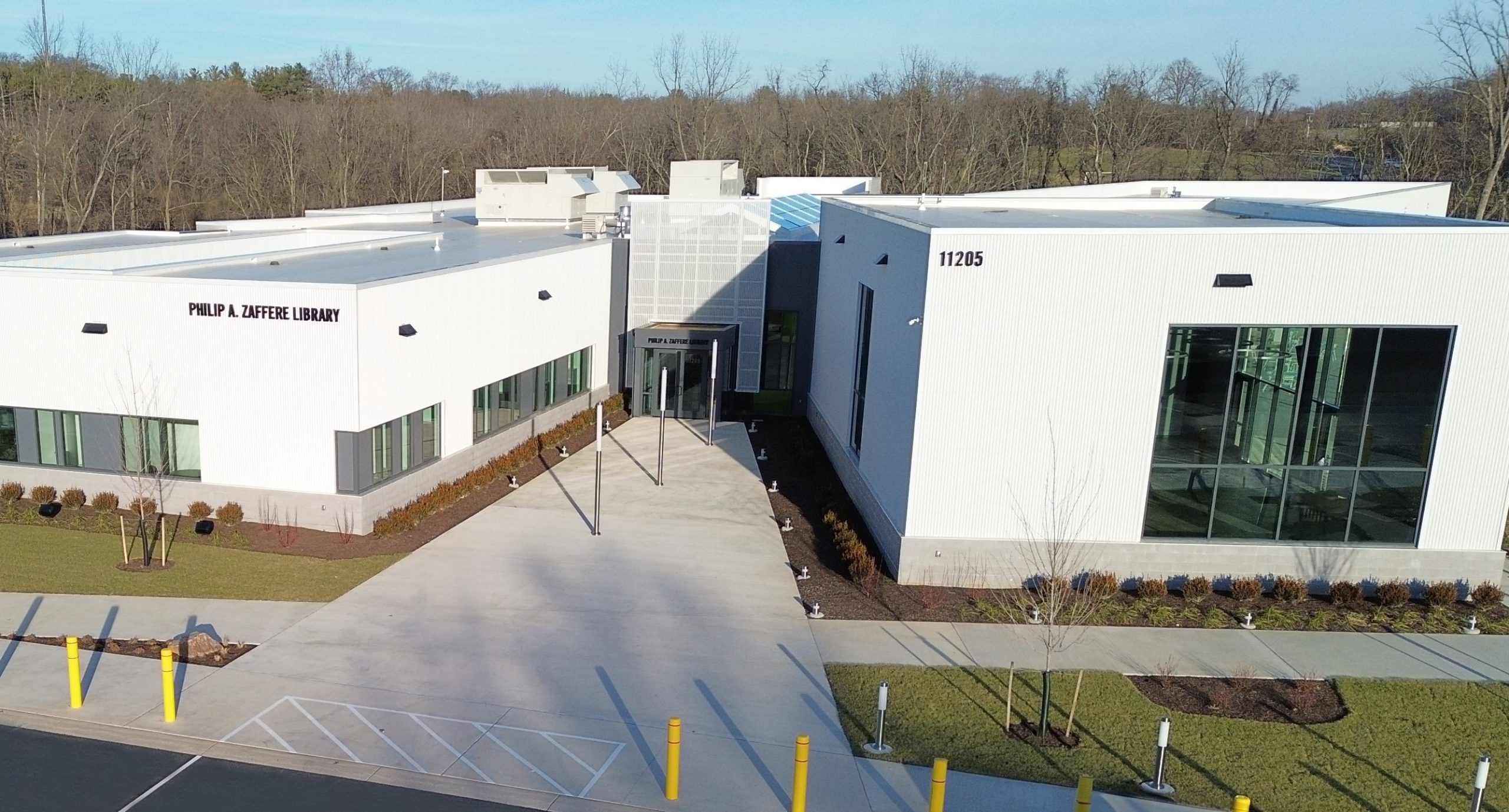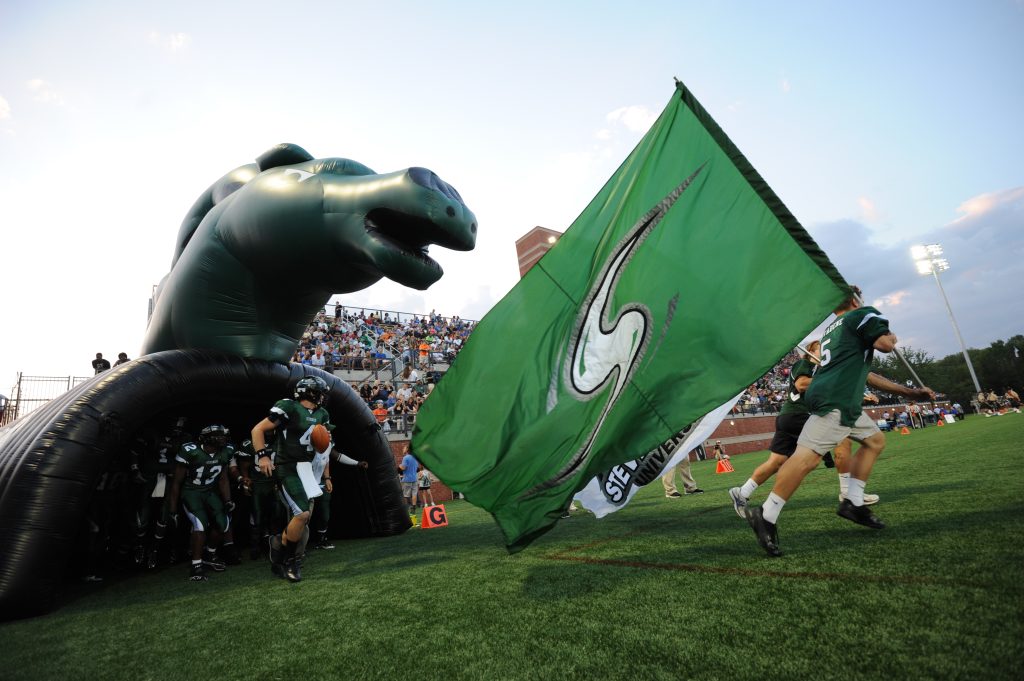Stevenson University expects all members of the campus community to follow the highest standards of honest and ethical conduct in all endeavors, as outlined in the university’s conduct policies. Procedures for investigating and resolving student misconduct, academic and otherwise, are described elsewhere. This policy describes the procedure for investigating and resolving allegations of misconduct in research or other scholarly activity by students, faculty, or staff.
Misconduct in research or other scholarly activity will not be tolerated, and allegations of such misconduct will be investigated thoroughly and resolved promptly. Every member of the university community is obligated to promptly report suspected violations of this policy to the appropriate institutional official. An institutional official who receives a report of alleged research or scholarly misconduct is obligated to follow up on the report with the Vice Provost for Sponsored Programs and Research according to the procedure outlined below.
This policy and procedure shall be implemented in accordance with all applicable federal, state, and local laws and regulations and sponsor requirements and guidelines, including but not limited to the Public Health Service Policies on Research Misconduct (42 CFR Part 93).
Confidentiality will be maintained throughout the investigation of any alleged misconduct. In accordance with the university’s Whistleblower and Retaliation Compliance policy, retaliation toward or harassment of employees who report alleged misconduct in a good faith, appropriate, and reasonable manner is prohibited.
Definitions
The following terms are defined below for the purposes of this policy and related procedures. In cases where the institutional official generally responsible for an aspect of this procedure has an apparent conflict of interest or is unable to fulfill their duties, a designee will be appointed by the Vice Provost for Sponsored Programs and Research or the Executive Vice President for Academic Affairs & Provost.
Allegation: Any written or oral statement or other indication of possible misconduct made to an institutional official.
Complainant: The individual(s) alleging that an act of misconduct has occurred.
Conflict of Interest: The real or apparent interference of one person’s interests with the interests of another person, where potential bias may occur due to prior or existing personal or professional relationships.
Day(s): Throughout this document, the term “day” or “days” means calendar days.
Dean: The School Dean with supervisory responsibility for the Respondent or the school with which the Respondent has primary affiliation.
Deciding Official: The institutional official making the final determination on allegations of misconduct and any responsive institutional actions, generally the Dean of the school with which the Respondent has primary affiliation.
Inquiry: Information-gathering and preliminary fact-finding to determine whether an allegation or apparent instance of misconduct warrants an investigation.
Inquiry Report: Report provided by the Investigating Official, which describes the inquiry process, including the evidence that was reviewed and the determination of whether further investigation is warranted.
Investigation: A formal examination and evaluation of relevant facts to determine whether misconduct has taken place and, if so, to determine the responsible person and the seriousness of the misconduct.
Investigation Committee: The group of three individuals appointed by the Vice Provost for Sponsored Programs and Research to conduct an investigation into allegations of research and scholarly misconduct.
Investigating Official: The institutional official charged with conducting the inquiry into an allegation in order to determine whether an investigation is warranted and, if so, coordinating such investigation and writing the Investigation Report and Record, generally the Vice Provost for Sponsored Programs and Research.
Investigation Report and Record: Official record of all investigation activities, including any supplemental documentation provided as evidence.
Misconduct: For the purposes of this policy, misconduct is defined as fabrication, falsification, plagiarism, or other serious deviation from accepted practices in proposing, carrying out, reporting results from, or representing research or other scholarly activities. The term “serious deviation from accepted practices,” as used herein, includes but is not limited to the following examples of prohibited conduct:
- Improper use or appropriation of information learned from reviewing the grant applications or manuscripts of others.
- Making a false or grossly negligent accusation of scholarly misconduct; withholding or destruction of information relevant to a claim of misconduct; obstruction of a misconduct inquiry or investigation; and retaliation against persons involved or perceived to be involved in the allegation or investigation.
- Failure to comply with regulatory requirements affecting sponsored projects, including but not limited to substantial violations of federal or state regulations involving conflict of interest, the use of sponsored project funds, care of animals, human subjects, investigational drugs, recombinant products, new devices including engineering research materials, or radioactive, biological or chemical materials, or other environmental protection regulations.
- Deliberate misstatement of misrepresentation of the credentials (i.e., qualifications, experience, research accomplishments, or racial/ethnic origin of the Principal Investigator or project staff) or material facts of a proposed or existing project in order to advance the research program, to obtain funding, or for other professional advancement.
- Deliberate sabotage, damage, or destruction of the research set up, equipment, or records.
Misconduct, as defined herein, does not include honest error or honest differences in interpretation or judgments of data. Further, this policy does not relate to student conduct that is governed by student academic or judicial policies and is not intended to limit the exercise of legitimate academic freedom by any member of the university community.
Respondent: The individual(s) against whom an allegation of scholarly or research misconduct has been made.
Retaliation: Any action that adversely affects the employment or other institutional status of an individual that is taken by an employee because a Complainant or witness has made, or is perceived to have made an allegation of misconduct or otherwise cooperated with an inquiry or investigation.
Scholarly Misconduct Review Board: The group of faculty and staff in Academic Affairs who are nominated to serve as needed in investigations of allegations of research and scholarly misconduct. The Investigation Committee for a particular case will be selected and appointed by the Vice Provost for Sponsored Programs and Research from this group of individuals.
Procedure
Reporting Misconduct
Anyone having reason to believe that a member of the Stevenson University community (faculty, staff, or student) has engaged in research or scholarly misconduct should make a report to a supervisor or other institutional official. A supervisor or institutional official who receives a verbal or written report of potential scholarly misconduct should promptly refer the report to the Vice Provost for Sponsored Programs and Research, who will serve as the Investigating Official. A report of alleged research or scholarly misconduct that is referred to the Investigating Official must be in writing.
The institution will use due care to maintain confidentiality of all information related to the report, inquiry, and investigation of an allegation of misconduct, including protecting the privacy of the Complainant to the extent provided by law, except insofar as information needs to be disclosed in order for the institution to effectively investigate the matter or take corrective action.
Upon receipt of an allegation of misconduct, the Investigating Official will notify, in writing, the Respondent’s immediate supervisor (Program Coordinator or Director/Department Chair), Dean or equivalent administrator, and the Provost of the need for an inquiry. The Investigating Official shall also provide written notification of the intent to proceed with an inquiry to the Respondent.
At the time of notification of the intent to proceed with an inquiry, the Investigating Official will take reasonable steps to obtain custody of all research records and evidence relevant to the misconduct proceedings and inventory and secure the records and evidence. The Investigating Official will maintain custody and security of all research records and evidence, including additional materials collected as part of the investigation, throughout the misconduct proceedings.
In cases involving sponsored research or projects, inquiries and investigations will be conducted in accordance with applicable regulations and guidelines of the sponsor. The Vice Provost for Sponsored Programs and Research will be responsible for ensuring that the procedures conform to such requirements, including any reporting procedures required by law, regulation, or policy. Respondents should be aware that sponsors may investigate allegations, impose sanctions, and take other actions independent of actions taken by Stevenson University.
Inquiry
The Investigating Official shall conduct an inquiry to determine whether a full investigation of the allegation of misconduct is warranted. This inquiry shall consist of interviews with the Complainant, the Respondent, and key witnesses, as well as a review of all research records and evidence, and any relevant supplemental documentation that is provided.
A written Inquiry Report will be prepared by the Investigating Official. The report will include the following information:
· The name and title of the Investigating Official
· The allegations
· A summary of the inquiry process, including the names and titles of all individuals who were interviewed as part of the inquiry and a list of all research records, evidence, and supplemental documents that were reviewed as part of the inquiry
· Summaries of all interviews that were conducted
· Summary of the findings of the inquiry, including, but not limited to, whether further investigation is warranted
The Investigating Official will provide a draft of the Inquiry Report to the Respondent for comment and rebuttal. The Respondent will provide comments, if any, to the Investigating Official within (five) 5 calendar days. If the Respondent does not provide comments within the specified time frame, they forfeit the opportunity to have their response considered in the inquiry process.
The Investigating Official will provide to the Complainant a copy of those portions of the draft Inquiry Report that address the Complainant’s role, opinions, and assertions. The Complainant will provide comments, if any, to the Investigating Official within (five) 5 calendar days. If the Complainant does not provide comments within the specified time frame, they forfeit the opportunity to have their response considered in the inquiry process.
Comments provided by the Respondent and Complainant will be included in the final Inquiry Report, which will then be shared with the Respondent, the Respondent’s immediate supervisor (Program Coordinator or Director/Department Chair), Dean or equivalent administrator, and the Provost. The Inquiry Report will serve as official written notification of the decision regarding further investigation. The entire inquiry process up to the submission of the final Inquiry Report shall be completed within (four) 4 weeks of the notification of the intent to proceed with an inquiry.
The Investigating Official is responsible for maintaining all records of any inquiries of alleged misconduct until such time as litigation or sponsor action is no longer probable, and for a period of at least three (3) years.
Investigation
If the Investigating Official determines that further investigation of alleged misconduct is warranted, an Investigation Committee shall be appointed and convened. Members of the Academic Affairs Leadership Council will be invited to nominate two (2) faculty or staff from their area(s) for inclusion in a Scholarly Misconduct Review Board. The Vice Provost for Sponsored Programs and Research will select and appoint three (3) individuals from this pool to serve on the Investigation Committee. The members of the Investigation Committee must not have real or apparent conflicts of interest in the case, must be unbiased, and must have the necessary expertise to evaluate the evidence and issues related to the allegation, interview the principles and key witnesses, and conduct the investigation.
The Investigating Official will notify the Respondent of the proposed membership of the Investigation Committee within ten (10) days of the notification of the need for investigation via the Inquiry Report. The Respondent may object to the appointment of any member of the Investigation Committee on the basis of bias or conflict of interest. Any objections must be submitted in writing to the Investigating Official within three (3) days of receipt of the list of proposed committee members. If an objection to any committee member is filed, the Investigating Official shall determine whether to replace the challenged member with a qualified substitute.
Upon appointment of the Investigation Committee, the Investigating Official shall provide the committee members with the written misconduct allegation(s), the Inquiry Report, and all evidence and supporting documentation. The investigation shall be considered initiated on the date that the misconduct allegation and all supporting documentation are referred to the Investigation Committee. The investigation shall be completed within four (4) weeks of the submission of the misconduct allegation and supporting documentation to the Investigation Committee.
The Investigating Official shall facilitate and coordinate the scheduling of all meetings of the Investigation Committee. At the initial committee meeting, the Investigating Official shall review the charge to the committee, obtain written assurances of confidentiality from all committee members, review the allegations and any associated issues, and assist in organizing the plans for the investigation. The Investigating Official shall provide administrative support to the committee, including scheduling and attending all meetings, maintaining official records of investigation proceedings and evidence, and facilitating any additional research and the compiling and writing of the Investigation Report and Record.
The Investigation Committee shall interview the Complainant, the Respondent, and key witnesses, as well as examine all relevant research records and materials. At its discretion, the Investigation Committee may call additional witnesses and/or request additional research records and materials as necessary. All persons called to testify before the Investigation Committee will be asked to sign a confidentiality agreement and are expected to comply with all requests of the committee for scheduled appearances and the timely production of evidence.
Any person being interviewed by the committee may bring one personal advisor to the proceedings. The personal advisor, if present, may only advise the person being interviewed and may not advocate or speak for the interviewee, or otherwise directly address the committee. All persons being interviewed by the committee are expected to speak for themselves in all proceedings. Where necessary, the committee will adhere to any accommodations required or provided by the Office of Disability Services or the Office Human Resources.
Investigation Report
Within ten (10) days of the completion of the investigation, the Investigating Official shall work with the committee members to generate a written report of the proceedings and findings of the Investigation Committee. The report shall include the following information:
· The names and titles of the Investigating Official and all members of the Investigation Committee
· The name and title of the Respondent
· The allegation(s) of misconduct
· A summary of the investigation process used
· The names and titles of all individuals who were interviewed as part of the investigation
· A list of all research records, evidence, and supplemental documents that were reviewed as part of the investigation. These items comprise the investigation record and will be included as an appendix to the report.
· Summaries of all interviews that were conducted
· Summary of the findings of the investigation, including, but not limited to, a description of the evidence and a determination of whether misconduct occurred and the Respondent’s responsibility
The Investigating Official may, at their discretion, consult with University Legal Counsel in the writing of the Investigation Report.
The Investigating Official will provide a draft of the Investigation Report and Record to the Respondent for comment and rebuttal. The Respondent will provide comments, if any, to the Investigating Official within seven (7) calendar days. If the Respondent does not provide comments within the specified time frame, they forfeit the opportunity to have their response considered in the investigation process.
The Investigating Official will provide to the Complainant a copy of those portions of the draft Investigation Report that address the Complainant’s role, opinions, and assertions. The Complainant will provide comments, if any, to the Investigating Official within seven (7) calendar days. If the Complainant does not provide comments within the specified time frame, they forfeit the opportunity to have their response considered in the investigation process.
Comments provided by the Respondent and the Complainant will become part of the final Investigation Report and Record.
Within three (3) calendar days of receiving the Respondent’s and the Complainant’s comments or the expiration of the seven (7) day response period, the Investigating Official will provide the final Investigation Report and Record, including all research records, evidence, and supporting documentation, to the Dean.
Decision
The Dean shall be the Deciding Official. Upon receipt of the Final Investigation Report and Record, including all supporting documentation, the Dean will consult with the appropriate Faculty Administrator and other relevant individuals as necessary. The Dean will prepare a written response to the Final Investigation Report and Record which will include the final decision of whether research or scholarly misconduct occurred, the responsibility of the Respondent, and any disciplinary action to be taken. This response will be provided to the appropriate parties, including the Respondent, within ten (10) calendar days. Disciplinary actions may include, but are not limited to, one or more of the following:
· Letter of reprimand
· Special monitoring of future work
· Probation
· Suspension
· Salary reduction
· Rank reduction (with concurrence of the Provost? President?)
· Non-renewal of contract
· Termination of employment (with concurrence of the Provost? President?)
Appeal of the Deciding Official’s Decision
The Respondent has the right to appeal the Dean’s decision prior to the implementation of any disciplinary action. The Respondent must submit the appeal in writing to the Executive Vice President for Academic Affairs & Provost within ten (10) calendar days of notification of the Dean’s decision. Grounds for appeal are limited to procedural error or arguments that clearly and convincingly establish that the Dean’s decision is not supported by the evidence provided in the Official Record. The written appeal must set forth the specific grounds for appeal.
Upon submission of a written formal appeal, the Executive Vice President for Academic Affairs & Provost or a designee will review all documentation. If the Executive Vice President for Academic Affairs & Provost concurs with the Dean’s decision, the decision is considered final and the Official Record, including all supplemental documentation and the formal appeal, will be returned to the Dean. The Dean will initiate the recommended disciplinary action. All disciplinary actions to be taken as a result of a finding of misconduct shall be subject to and carried out in accordance with applicable Stevenson University Employment Policies.
If the Executive Vice President for Academic Affairs & Provost does not concur with the decision of the Dean, they may take such action as they deem appropriate, consistent with Stevenson University policies.
Written notification of the final decision of the Executive Vice President for Academic Affairs & Provost regarding the appeal will be sent to the appropriate parties, including the Respondent, within fifteen (15) days of the receipt of the appeal.
Post-Decision/Appeal Process
If there is no appeal of the Dean’s decision or upon issue of the Provost’s decision regarding an appeal, the Vice Provost for Sponsored Programs and Research will provide the Dean with official notification that the investigation is closed. The recommended disciplinary action will be implemented by the Dean in accordance with applicable Stevenson University Employment policies.
If there is a finding of no misconduct, the Investigating Official will consult with the Provost, the Respondent, and University Legal Counsel as needed, to determine if it is necessary to take action to restore or protect that Respondent’s reputation. If necessary, the Investigating Official will undertake reasonable efforts to restore or protect the Respondent’s reputation, which may include notifying individuals who are aware of or were involved in the investigation of the final outcome, publicizing the final outcome or expunging all reference to the misconduct allegation from the Respondent’s personnel files.
All investigation records will be kept until such time that no further action (litigation or sponsor action) is probable, and at least three (3) years after the conclusion of the investigation. The Vice Provost for Sponsored Programs and Research will store all records on secure University systems.
(Approved August 2020)






